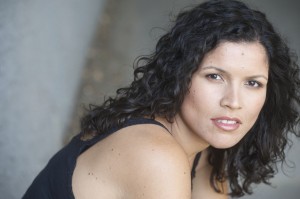“Right now we could probably rename 85% of produced American theatre White Dudes, White Dudes, and More White Dudes. This kind of imbalance shuts down both existing audience and potential audience. Those who are not directly affected by this don’t see a need to talk about it. Those of us who are affected are often scared to talk about it. Finding work in the theatre is already difficult; add being a woman, add being a woman of color, add being a transgender person of color (which I am not, but we as allies must rep for each other), add being someone who wants to talk about inequities. Suddenly pointing out the obvious becomes dangerous. This is how a problem that could be easily solved remains.
And yet, here comes my optimism, I believe that innovation in theatre lies in underrepresented voices. In the theatre one of the great fears of representing works by people of color is that you will lose audience. Being Mixed is, by its very nature, inclusionary rebellion. We are made by people who chose love over habit. Perhaps if the theatre took a break from purely habitual creation it would surprise itself.
We don’t create art for singular answers. We have standardized testing for that. We create art to beckon the future and illuminate the past. We create art because parts of ourselves are hidden and we want to be seen. We sit in a theatre to feel connected to other humans. In a movie theatre you lean back to take in the whole picture. At a play, you lean in. You lean in to get closer to the touchable wonder in arms reach. In an art form that is so much about connection, how can we exclude?”–Khanisha Foster Twitter: @khanishafoster
![]()
![]()
![]()
 Read the full interview here. Thanks Jacqueline Lawton for this inspired series!–Heidi Durrow
Read the full interview here. Thanks Jacqueline Lawton for this inspired series!–Heidi Durrow